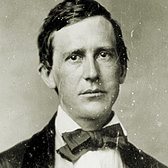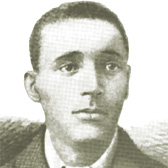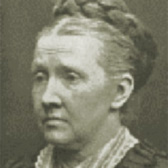
Called "the father of American music"
Stephen Foster
Inductee"Oh! Susanna" and dozens more foundation stones of the American songbook
A melodic genius with tender, sympathetic lyrics and infectious rhythm, Stephen Foster is often credited as "America's First Composer" and widely regarded as one of the first who made professional songwriting profitable. Fosters' songs were the first genuinely American in theme, characterizing love of home, American temperament, river life and work, politics, battlefields, slavery and plantation life.
A self-taught musician, his poems and melodies were written in a simple manner with little musical embellishment or complexity. His work mirrored a kind, modest and sympathetic personality. In a sentimental style inspired by the simplicity of southern plantation music, Foster wrote such songs as "Old Folks At Home", "My Old Kentucky Home", "Oh! Susana" and "Old Black Joe". These songs, and many others from the Foster catalog, brought recognition and validity to Negro songs.
Stephen Collins Foster was born in Lawrenceville, Pennsylvania on July 4, 1826, to a politically and socially prominent Pittsburgh family. His father, William Barclay Foster, was a member of the Pennsylvania State Legislature and the mayor of Allegheny City (a Pittsburgh suburb). Stephen Foster was the youngest of eleven children from William and his wife, Eliza Clayland Tomlinson Foster.
In 1840, Foster attended Allegheny Academy, the first of three failed scholarly attempts, followed by Athens Academy and Towanda Academy. At Athens, the fourteen-year old Foster wrote his first song "The Tioga Waltz" (not published until after his death). In July 1841, Foster enrolled in Jefferson College at Canonsburg, PA, however struck with desperate homesickness, his attendance lasted 1 week and from 1841 to 1846, he lived with his family in Pittsburgh doing private study. It was during this time that his musical genius began to unfold and in 1843, his first song was published "Open Thy Lattice Love" and in 1845, during a family concert at the Foster House, "Lou'siana Belle", "Old Uncle Ned" and "Oh! Susanna" were introduced for the first time.
By 1846, Foster had moved to Cincinnati to work as a bookkeeper for the Irwin & Foster Steamboat Agency (brother Dunning was a partner). Cincinnati society was a convergence of the Industrial working class, Irish, English and Scottish aristocracy, plantation slaves and river life. Foster soon abandoned the pursuit of business and dedicated himself to writing songs inspired by the cultures that surrounded him. In 1848, he sold "Oh! Susana" and "Old Uncle Ned" to W.C. Peters and in 1849 negotiated a contract with New York publishers Firth & Pond Co.
He moved back to Pittsburgh in 1850 and in the following six years penned more than 160 songs. During this time, Foster began corresponding with E.P. Christy, leader of the Christy Minstrels, the most successful minstrel show of the time. An arrangement was made for the show to be the first to sing his songs, and the two agreed that in exchange for the introductory performances, which would bring the songs to popular attention, the sheet music credit would include "As sung by the Christy Minstrels". There is no doubt the minstrel shows were great plugs for Foster's work and the relationship was profitable for both parties. With the exception of the 1851 sale of "Old Folks At Home" to E.P. Christy and subsequent publication, which erroneously credited the songwriter as E.P. Christy, the association remained intact and beneficial for many years.
Foster married Jane Denny McDowell on July 22, 1850 and the couple settled in Pittsburgh. The marriage produced one daughter, Marion, and was a series of separations and reconciliation's. During one separation, Foster wrote "Jeannie With the Light Brown Hair" inspired by his estranged wife (they reconciled after its publication). While he had substantial royalties from his publishers in New York, his debt increased along with his dependency on alcohol. The strain on the marriage was further emphasized by Foster's creative slump of the late 50's. In 1860, the publication of "Old Black Joe" ended the exclusive relationship with Firth & Pond Co.
The Civil War introduced a new type of song motivated by patriotism and military marches. While Foster added to the war effort with songs expressing homesickness, love, and heroic soldiers, these songs did not achieve the singular success found in the previous decade. After moving to New York City in 1861, Foster was reduced to selling the rights to his songs for cash in hand.
Alcoholic, penniless and consumed by loneliness and debt, Foster died in New York City on January 13, 1864. His death followed the completion of his last great song "Beautiful Dreamer". Written two weeks earlier, Foster wrote in his trademark sentiment about escape from bitter realities. He is said to have died with a purse carrying less than $.40 and a scrap of paper reading "Dear friends and gentle hearts".



